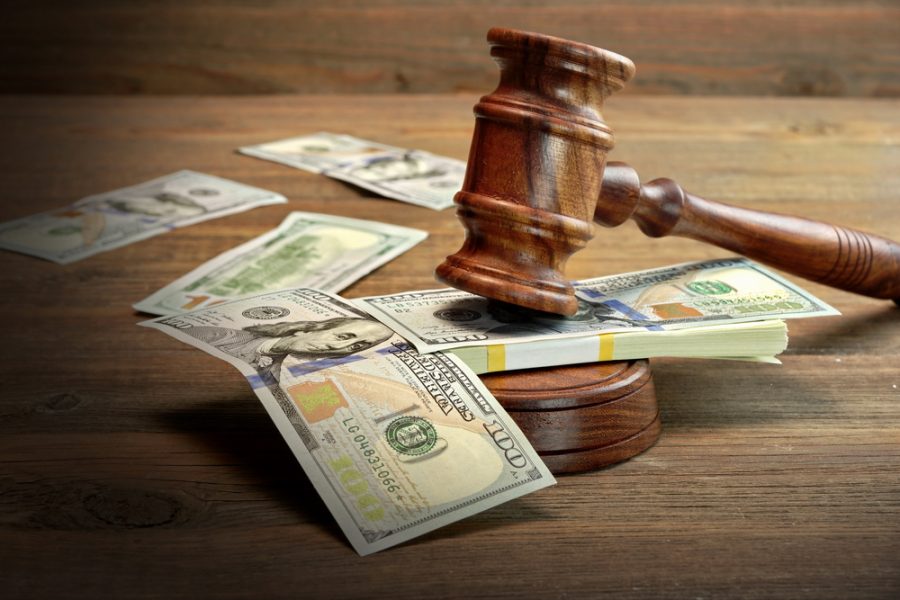Trademark Applicants Who Appeal to District Court Must Pay USPTO Attorney Costs, Fourth Circuit holds in Shammas v. Focarino

There are multiple avenues for an applicant to appeal a Trademark Trial and Appeal decision, but the Fourth Circuit held that applicants who choose to appeal to a District Court must pay the United States Patent and Trademark Office’s attorney’s fees and related expenses. On April 23, 2015, the United States Court of Appeals for the Fourth Circuit upheld 2-1 a decision requiring a trademark applicant to pay over $36,000 in attorney’s fees to the United States Patent and Trademark Office, which would have been required regardless of whether the applicant won or lost. Shammas v. Focarino, 784 F.3d 219, 221 (4th Cir. 2015).
Trademark Applicant Shammas’ Application Was Denied
Trademark Applicant Shammas filed for a trademark application for PROBIOTIC in connection with fertilizer products. A trademark examining attorney for the United States Patent and Trademark Office denied Shammas’ application on the grounds that the term was generic and descriptive. The Trademark Trial and Appeal Board affirmed. Shammas appealed the refusal to the federal district court for the Eastern District of Virginia.
The district court granted the USPTO’s motion for summary judgement, holding that “Shammas had failed to cast doubt on the finding that ‘PROBIOTIC’ was a generic term.” The USPTO also filed a motion for reimbursement of $36,320.49 in expenses that it had incurred in the proceeding, including the prorated salaries of two attorneys, in the amount of $32,836.27, one paralegal, in the amount of $3,090.32, and $393.90 for photocopying expenses.
The basis of this reimbursement is Section 1071(b)(3) of that Lanham Act, which states that: “[i]n any case where there is no adverse party, a copy of the complaint shall be served on the Director, and, unless the court finds the expenses to be unreasonable, all the expenses of the proceeding shall be paid by the party bringing the case, whether the final decision is in favor of such party or not.” (emphasis added).
Shammas opposed the motion, arguing that Section 1071(b)(3) did not authorize the awarding of “attorney’s fees” as one of the “expenses” outlined in Section 1071(b)(3). Shammas appealed to the Fourth Circuit, arguing that it violated the “American Rule,” i.e. that “the prevailing party may not recover attorneys’ fees as costs or otherwise.” Shammas argued that, because Congress can only displace the American Rule “directly and explicitly,” the term “expenses” was not specific enough to include attorney’s fees.
The Fourth Circuit disagreed and held that § 1071(b)(3) imposes “a unilateral, compensatory fee, including attorney’s fees, on every ex parte applicant who elects to engage the resources of the PTO when pursuing a de novo action in the district court, whether the applicant wins or loses” and that that reading “is confirmed by the Lanham Act’s structure and legislative history.”
Appealing a Trademark Trial & Appeal Board Decision
Shammas v. Focarino involves an ex parte appeal, which is an appeal of a trademark examiner’s final refusal. An applicant who feels that its application was wrongly refused can appeal the decision to the Trademark Trial & Appeal Board. After losing an appeal before the TTAB, the applicant may choose to appeal the decision to either the Court of Appeals for the Federal Circuit or to a federal district court.
If the applicant appeals to the Federal Circuit, the Federal Circuit will review the TTAB’s decision under a “clearly erroneous” standard. Under a “clearly erroneous” standard, the Federal Circuit does not look at whether the TTAB’s findings of fact were correct – it asks whether the TTAB was clearly wrong. Appeals to the Federal Circuit are made with a closed record, meaning no extrinsic evidence may be entered into the record. The applicant cannot raise any new issues not brought before the examiner or the TTAB. In the past, an appeal to the Federal Circuit had the advantage of being faster and more cost effective appeal to a federal district court.
The applicant can also appeal a TTAB decision to a federal district court. At the district court, an Applicant can submit additional evidence and bring new issues not originally argued before the USPTO. The district court reviews the decision under a hybrid de novo review where, unlike traditional de novo review, the TTAB’s finding are given great deference. While an appeal to a federal district court has always been considered costly, the Fourth Circuit has made it even more costly by finding that an applicant will be required to pay the reasonable costs involved with the appeal, which, in Shammas, included over $35,000 of the USPTO’s attorney’s fees.
After Shammas, the decision to file the appeal with a district court will likely only be used in very specific circumstances for clients with high-stakes trademark applications and deep pockets. If a trademark applicant uncovers new evidence or a line of legal reasoning that was completely overlooked in the original appeal, then an applicant may consider paying the extra $30,000 in USPTO legal fees to bring this appeal in a federal court.
Do you need assistance with a trademark matter?
Contact an Attorney Today